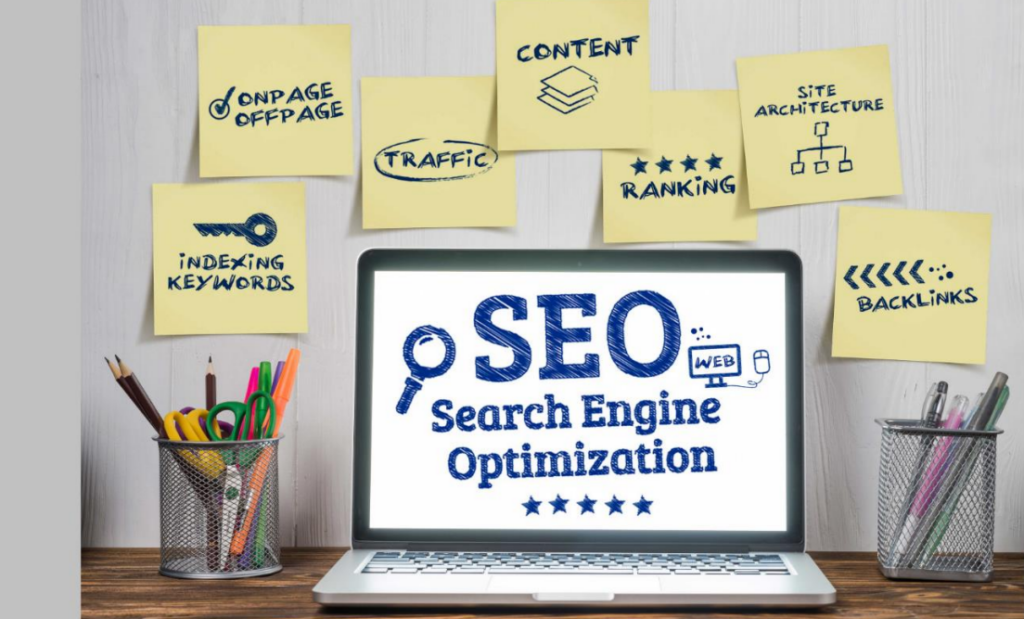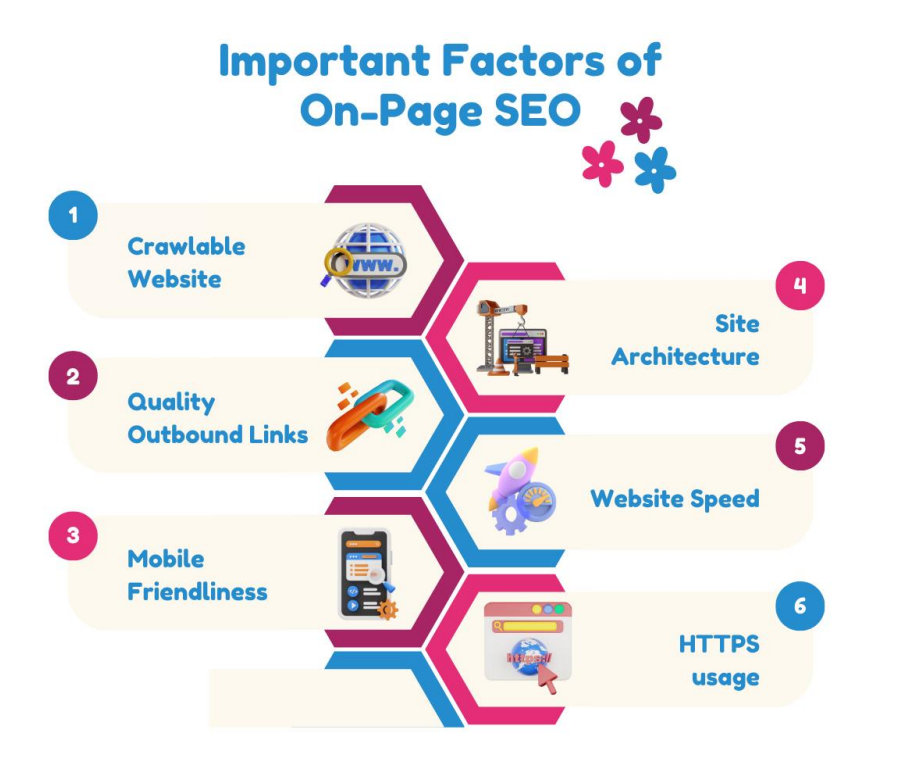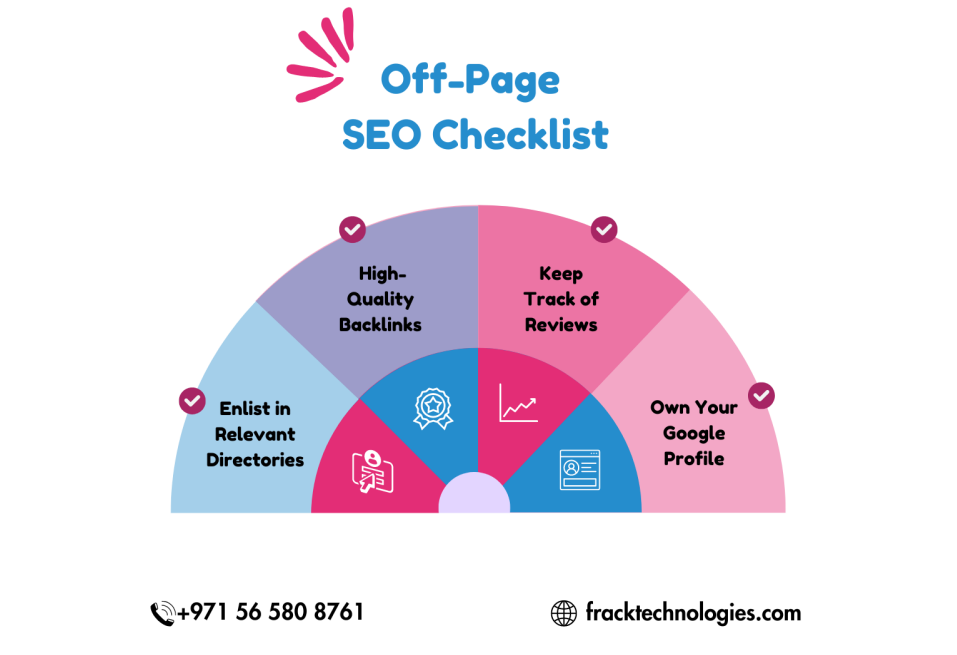
Search Engine Optimization (SEO) is a fundamental aspect of online
success, driving organic traffic and enhancing online visibility. In today’s digital
landscape, where competition is fierce, having a strong SEO strategy is crucial for small
business owners, E-Commerce store owners, website owners, bloggers, and
webmasters alike.
Introduction: In the digital age, having a strong online presence is crucial for the success of any business or website. Search Engine Optimization (SEO) is the key to achieving higher visibility on search engine result pages and attracting organic traffic. Understanding SEO and implementing effective strategies can significantly improve your website’s rankings and drive more relevant visitors to your online platform. In this comprehensive guide, we’ll delve into the world of SEO, exploring its fundamental concepts, best practices, and the latest trends to help you unlock the true potential of your online presence.
What is SEO?
Search Engine Optimization (SEO) is a set of techniques and practices aimed at enhancing a website’s visibility in search
engine results. It involves optimizing various aspects of your website to make it more appealing to search engines, ensuring
that it ranks higher for relevant search queries.
The Importance of SEO for Businesses:
The significance of SEO cannot be overstated in today’s competitive digital landscape.
People browse the internet and search for things every day. According
to GlobalWebIndex, 60% of the world’s population has access to the internet. And did
you know that 53% of B2B and B2C website traffic comes from organic search? That means more than half of your website traffic could come from search engines like
Google. So you need to optimize your website for search engines to get website traffic. A strong SEO strategy can help businesses:
Increase organic traffic and attract relevant visitors.
Build brand authority and trust.
Improve user experience and website usability.
Outrank competitors in search results.
Boost conversion rates and drive more sales.
On-Page SEO: Optimizing Your Content and Pages
On-page SEO focuses on optimizing individual web pages to rank higher and earn more
relevant traffic. Key elements of on-page SEO include:

Keyword research and selection: Identifying target keywords to optimize content.
High-quality content creation: Producing valuable, informative, and engaging
content for users.
Title tags and meta descriptions: Crafting compelling snippets that entice users to
click.
Header tags and content structure: Organizing content using proper headings
and subheadings.
URL optimization: Creating search-friendly and descriptive URLs.
Off-Page SEO: Building Authority and Backlinks
Off-page SEO revolves around activities that occur outside your website but have a
significant impact on your search rankings. This includes:

Link-building strategies: Earning high-quality backlinks from authoritative
websites.
Social media marketing: Leveraging social platforms to increase brand visibility
and engagement.
Online reputation management: Monitoring and enhancing your online reputation
through reviews and testimonials.
Technical SEO: Enhancing Website Performance
Technical SEO ensures that search engines can crawl, index, and understand your website effectively. Key technical aspects include:
Mobile-friendliness: Optimizing your site for seamless mobile experiences.
Site speed and performance: Improving loading times for better user satisfaction.
SSL and HTTPS: Securing your website with HTTPS to install trust in users. XML sitemap and robots.txt: Assisting search engines in understanding your site’s structure.

Local SEO: Targeting Local Audiences
Local SEO is essential for businesses that target specific geographic locations.
Strategies include:
- Google My Business: Creating and optimizing your GMB listing to appear in local
searches. - Local citations: Building citations on relevant directories to improve local visibility.
- NAP consistency: Ensuring Name, Address, and Phone Number are consistent
across all online platforms.
Measuring SEO Success: Key Metrics and Tools
To gauge the effectiveness of your SEO efforts, you need to track and analyze relevant
metrics. Important SEO metrics include:
- Organic traffic: Monitoring the number of visitors coming from search engines
- Keyword rankings: Tracking your website’s positions for target keywords.
- Bounce rate and user engagement: Analyzing how users interact with your site.
- SEO tools: Utilizing tools like Google Analytics, Google Search Console, and
third-party SEO software
SEO best practices and tips
In the ever-evolving landscape of SEO, staying one step ahead is paramount.
Embracing best practices and embracing industry trends can set you apart from the
competition. Let’s explore essential tips to navigate the dynamic SEO world effectively
Prioritize User Experience: Craft a user-friendly website with an intuitive
layout, easy navigation, and swift loading times. Optimize for mobile devices and ensure
accessibility for all users.
Harness Structured Data: Utilize structured data and schema markup to
provide search engines with context about your content. This enriches your search
listings, making them more informative and appealing.
Optimize for Local Search: For local businesses, boost your online
presence by integrating local keywords, business address, and phone number.
Optimize your Google My Business listing for enhanced local visibility.
Stay Abreast of Changes: For local businesses, boost your online
presence by integrating local keywords, business address, and phone number.
Optimize your Google My Business listing for enhanced local visibility.
Build a Sustainable Strategy: Focus on a long-term SEO plan rather than
quick fixes or dubious tactics. Produce valuable content, earn authoritative backlinks,
and optimize based on data and user feedback
Remember, SEO demands consistent effort and adaptability. Regularly monitor
rankings, traffic, and user behavior. Be flexible and adjust your strategy based on
insights and performance metrics. By adhering to these practices and embracing
change, you’ll confidently navigate the SEO landscape and steer your website towards
lasting success.
Avoiding Common SEO Mistakes
While implementing SEO, it’s essential to avoid common pitfalls such as keyword
stuffing, irrelevant backlinks, and neglecting website updates. Understanding these
mistakes will help you build a solid and sustainable SEO strategy.
The Future of SEO: Evolving Strategies
The SEO landscape is continuously evolving, driven by algorithm updates and changing
user behavior. Keeping an eye on emerging trends such as voice search optimization,
user experience (UX), and AI-driven search algorithms will be crucial for staying ahead
in the SEO game.
Unlocking Your SEO Potential
In the ever-evolving digital realm, your SEO potential holds the
key to unlocking unparalleled online success. With the power to
drive organic traffic and boost your online visibility, mastering
SEO has become indispensable for businesses, entrepreneurs,
bloggers, and website owners navigating the competitive digital
landscape. Embark on a transformative journey as we delve
into the secrets of SEO, revealing how you can harness its full
potential to soar to new heights in the digital world. Get ready to
pave the path to prominence, leaving your mark in the digital
domain like never before.
Conclusion:
Search Engine Optimization is a dynamic and ever-evolving field, and mastering its
intricacies is essential for online success. By understanding the core principles,
implementing best practices, and staying updated on the latest trends, you can harness
the power of SEO to elevate your online presence, attract more visitors, and grow your
business in the digital world. Remember, SEO is a long-term investment that requires
consistent effort, but the rewards it offers are well worth the journey




